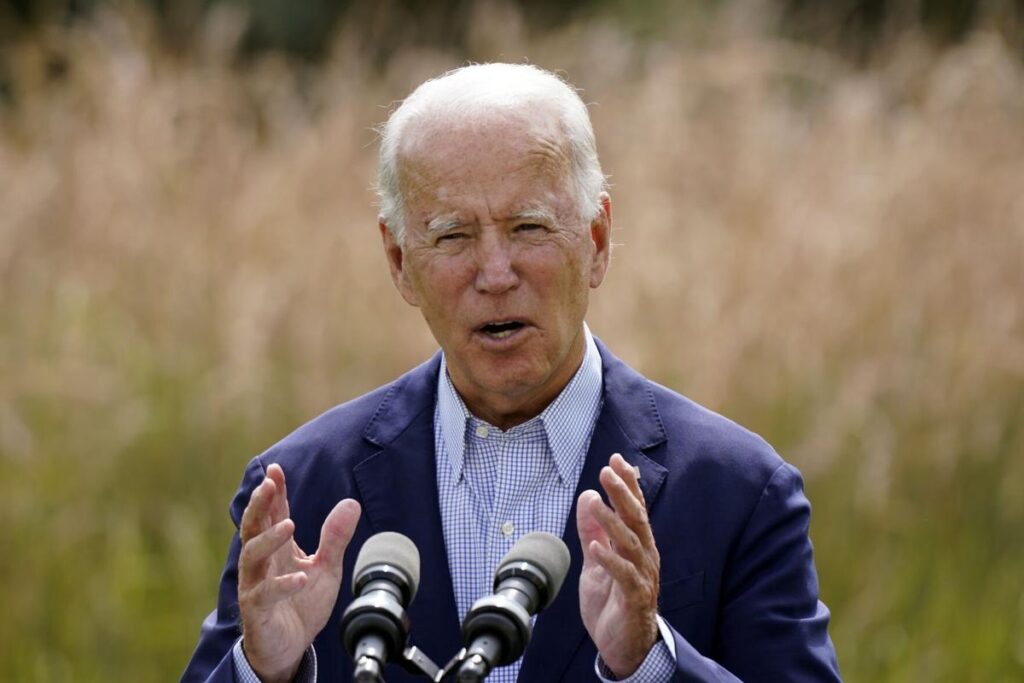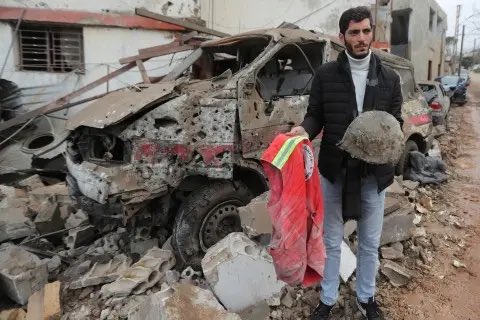
U.S. President Joe Biden has expressed doubt that the ongoing conflict in the Middle East will escalate into a full-scale war. His comments come as Israel contemplates its response following Tehran’s largest assault on the nation to date. However, Biden stressed that further efforts are needed to prevent widespread conflict.
”Donald Trump says that Biden’s statement that Israel should not target Iranian nuclear sites is the craziest thing he’s ever heard.”
In a press briefing on Thursday, Biden emphasized the need for diplomacy while addressing the rising tensions between Israel and its adversaries. “I don’t believe there is going to be an all-out war,” he told reporters. “I think we can avoid it. But there’s still a lot to do yet.”
Despite calls from the United States, European Union, and other allies for an immediate 21-day ceasefire, the conflict continues to escalate. Israel launched new airstrikes on Beirut, targeting Hezbollah strongholds in southern Lebanon. Meanwhile, the U.S. has been discussing possible responses with Israel, including options for retaliatory strikes on Iran’s oil facilities after Tehran’s assault.
Rising Tensions Impact Global Markets:
Biden’s remarks coincided with a surge in global oil prices as fears of potential disruptions in the Middle East’s oil supply grew. However, the U.S. president played down the immediate threat of military escalation. “There is nothing going to happen today,” Biden reassured, while refusing to publicly confirm whether he was advising Israel against striking Iran’s oil installations.
Earlier in the week, Biden stated that the U.S. would not support any Israeli strike on Iran’s nuclear sites, adding to uncertainty over Israel’s potential response.
Israel and Hezbollah Exchange Fire:
On the ground, hostilities between Israel and Hezbollah intensified. Beirut’s southern suburbs, particularly the stronghold of Hezbollah, came under heavy Israeli bombardment late Thursday night. Lebanese residents reported renewed airstrikes targeting Hezbollah leader Hashem Safieddine, rumored to be a successor to the group’s assassinated leader, Hassan Nasrallah. Safieddine’s fate remains unclear.
In response, Hezbollah launched over 230 rockets towards Israel, including strikes on military installations in Haifa Bay and other northern regions. Israel’s military has yet to officially comment on the specific targets of the attacks.
International Calls for Restraint:
Amid the escalating violence, the Group of Seven (G7) nations condemned Iran’s missile attack on Tuesday and called for restraint. The group reaffirmed its commitment to Israel’s security but stressed the need for a ceasefire in Gaza and an end to hostilities in Lebanon.
“A dangerous cycle of attacks and retaliation risks fueling uncontrollable escalation in the Middle East, which is in no one’s interest,” the G7 stated.
Qatar’s Emir, Sheikh Tamim bin Hamad Al-Thani, also urged for a ceasefire, calling for an end to what he described as Israel’s aggression in the region.
U.S. Weighs Military Support for Israel:
In Washington, pressure is mounting on the Biden administration to expedite military aid to Israel. The chairman of the U.S. House of Representatives Foreign Affairs Committee, Michael McCaul, urged the president to speed up the shipment of 2,000-pound bombs, which have been delayed due to human rights concerns. McCaul argued that such weapons are essential for Israel to counter Hezbollah and Hamas, who are reportedly using deeply buried tunnels and bunkers.
Humanitarian Crisis Deepens:
The conflict has displaced over 1.2 million Lebanese citizens, with Lebanese authorities reporting nearly 2,000 fatalities since Israel began its attacks over the last year. Most of the casualties have occurred in the past two weeks, as fighting intensified. In Lebanon alone, 27 people were killed on Thursday, and 151 were injured, according to the health ministry.
Hezbollah claims it has repelled several Israeli incursions, with reports of direct clashes in southern Lebanon. The group stated that it killed 17 Israeli soldiers on Thursday, though Israel has not confirmed the losses.
Meanwhile, Israeli strikes in the occupied West Bank killed 18 people in the Tulkarm refugee camp on Thursday, with Israeli forces targeting a Hamas official in the area, according to Palestinian health authorities.
As the violence continues to spread across the region, international calls for restraint grow louder. With Iran, Hezbollah, and Israel locked in an increasingly complex conflict, the prospect of a broader Middle East war remains a concern for global leaders.
